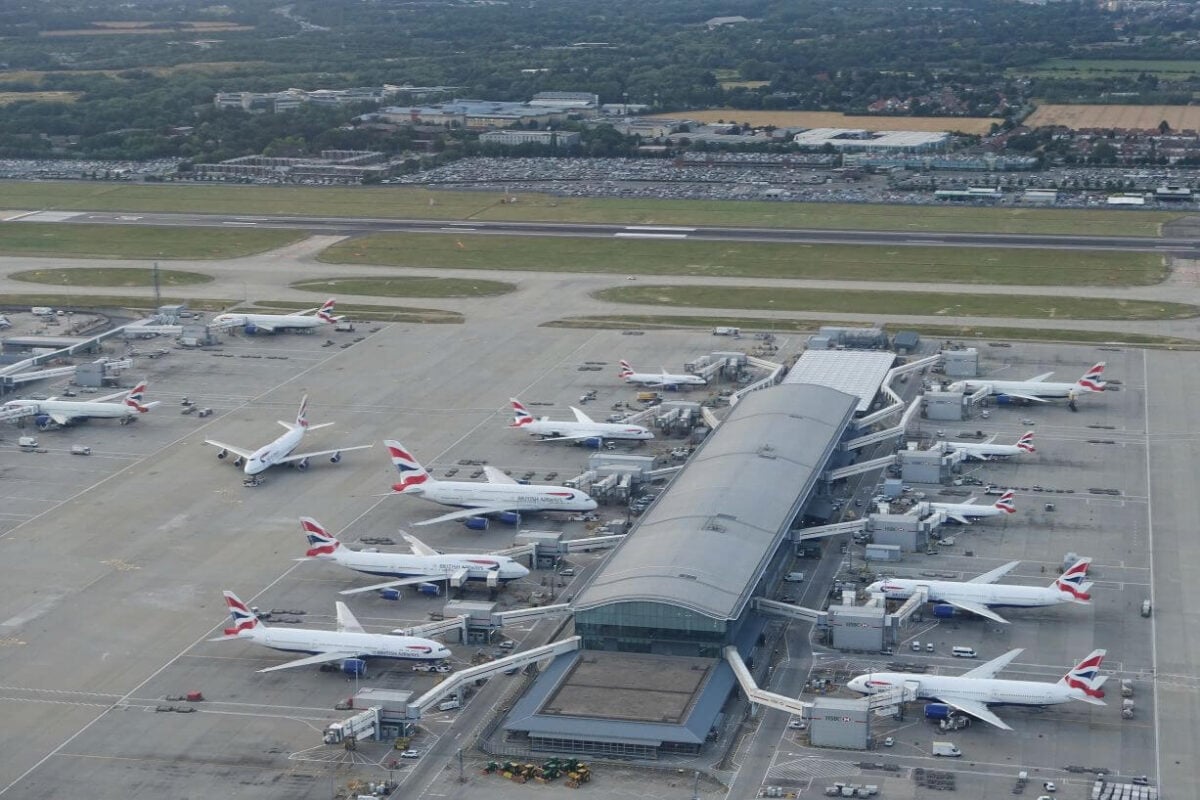TLDR
- Collins Aerospace’s MUSE software was targeted in a cyberattack affecting check-in and baggage systems at major European airports
- Heathrow, Brussels, Berlin, and Dublin airports experienced disruptions with manual check-in procedures implemented
- Brussels Airport canceled 44 flights on Sunday and asked airlines to cancel half their departing flights until Monday
- RTX, Collins Aerospace’s parent company, said the impact was limited to electronic check-in and baggage drop systems
- The attack caused hundreds of delays on Saturday with 47% of Heathrow’s departing flights delayed
A cyberattack on Collins Aerospace’s check-in technology disrupted operations at several major European airports over the weekend. The attack targeted the company’s MUSE software system used by airlines for check-in and boarding processes.
RTX, Collins Aerospace’s parent company, confirmed it was aware of cyber-related disruption to its MUSE software on Saturday. The company said the impact was limited to electronic customer check-in and baggage drop systems.
Heathrow Airport experienced the most disruption among affected airports. On Saturday, 47% of the airport’s departing flights were delayed according to FlightAware data. The airport deployed additional staff in check-in areas to help manage crowds.
Collins Aerospace, which provides check-in and boarding systems for several airlines across multiple airports globally, is experiencing a technical issue that may cause delays for departing passengers.
While the provider works to resolve the problem quickly, we advise… pic.twitter.com/f68e9CbIlu
— Heathrow Airport (@HeathrowAirport) September 20, 2025
British Airways continued operating normally at Heathrow using backup systems. Most other airlines serving the airport were affected by the outage and had to resort to manual check-in procedures using pen and paper.
Brussels Airport faced severe disruption and canceled 44 departing flights on Sunday. European aviation safety organization Eurocontrol asked airline operators to cancel half their flight schedules to and from Brussels until Monday morning.
❗️Uh-Oh NATO! Massive Cyberattack Hits European Airport Systems – Just After Alliance Inks Deal
London Heathrow, Berlin, and Brussels are most affected by the attack on Collins Aerospace, which provides check-in and boarding systems. The firm has recently wone a NATO contract… pic.twitter.com/o82HJq1zY8
— RT_India (@RT_India_news) September 20, 2025
The Belgian airport said it had no indication when the Collins Aerospace system would return to normal operation. Extra staff were brought in to help minimize disruption from manual check-in processes.
System Failures Force Manual Operations
Berlin Brandenburg Airport asked travelers to use online or self-service check-in instead of desk services. The airport reported 12 cancellations on Saturday with delays generally under 45 minutes.
Dublin Airport was also affected but expected to operate a full schedule on Sunday. Some airlines in Terminal 2 continued using manual processes to generate bag tags and boarding passes.
Cork Airport, owned by the same parent company as Dublin, initially reported minor impacts but later said it faced no disruption. All services were operating normally by Sunday.
Aviation analytics firm Cirium reported more cancellations across affected airports on Sunday than Saturday. By Sunday morning, 38 departures and 33 arrivals were canceled across Heathrow, Berlin, and Brussels.
Recovery Efforts Continue
The National Cyber Security Centre worked with Collins Aerospace, affected UK airports, and law enforcement to understand the incident’s full impact. The European Commission monitored the attack but found no indication it was widespread or severe.
Transport Secretary Heidi Alexander said she was aware of the incident and receiving regular updates. Airlines EasyJet and Ryanair, which don’t operate from Heathrow, reported normal operations throughout the disruption.
Passengers faced hours-long queues at affected airports on Saturday. Some travelers, including those with pets, were unable to board flights due to system requirements that couldn’t be met manually.
Collins Aerospace provides check-in and boarding technology for airlines at multiple airports globally. The company’s MUSE software allows different airlines to share check-in desks and boarding gates at airports.
RTX said it hoped to resolve the issue as quickly as possible but has not disclosed what caused the attack or provided a timeline for full system restoration. The company promised to provide details as soon as they become available.






